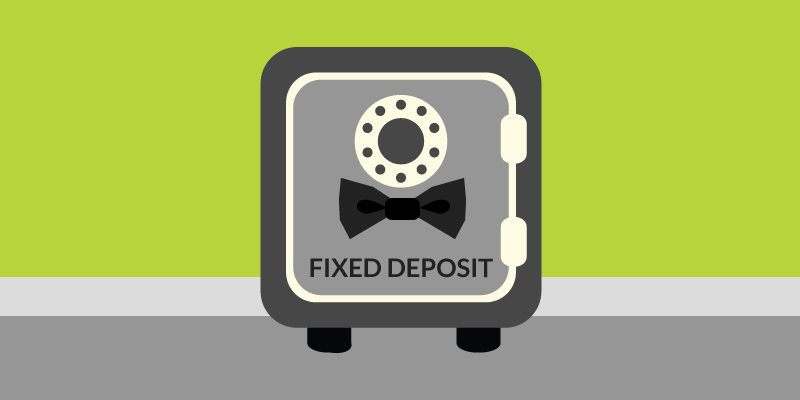If a company needs funds for expansion, there are many avenues they can turn to. Opening corporate fixed deposits are one such option.
Corporate FDs work in an investors favour as they have higher interest rates compared to bank FDs.
Things to check before saying ‘Yes’ to a corporate FD
A certain degree of due diligence is needed before parking money in corporate FDs.
Here are some factors to take into consideration
- Risk profile: What is the risk involved?
Company fixed deposits fall somewhere between bank FDs and stock market when it comes to risks; they are than bank FDs but, safer than equity market.
Unlike bank FDs, corporate FDs are generally unsecured. If the company offering the fixed deposit is strapped for, the chances of losing your principal amount and the assured interest on it are pretty high.
Make sure that the company you pick is financially healthy and helps you rule out any default risk during the fixed deposit period.
Do your research and find out why the company is raising money through offering FDs. If it’s for expansion, the company is growing, and this could work out well for you. If the money is being utilized to close a loan account, the company might be in debt.
- Past Performance: Are you investing in the right company?
Before investing, get a lowdown on the company’s balance sheet. You need to know the quantum of cash flows, the value of the fixed assets, the debt: equity ratio, etc.
Try to make a profit profile over the last five years and check whether the company was in the red for a long period of time. Also check whether there is any litigation against the company which can hamper the growth of the company. Avoid companies that don’t pay regular dividend to their shareholders.
The credibility of the promoters matters too. If the promoters have a dubious history, it is better not to invest in that company.
If you are unable to arrive at an investment decision from the company’s financial statements, you can go by the ratings of the credit rating agencies like CRISIL.
- Interest factor: Is the interest suspiciously high?
While bank FDs can fetch you an interest rate of 7% to 9 %, a corporate FD can get you close to 13%.
But you have to guard against falling into a trap. If a company offers an interest rate of, say, 16%, then there’s probably something wrong. The company may be facing shortage of funds and wants to attract investment.
Here the default risk may be very high.
- Terms of FD: Does the FD work in your favour?
A cumulative scheme could better than a regular income option as the interest earned gets invested in other avenue. At the end of the day, you’ll have a lump-sum amount in your hands. But not if you’re looking for a regular income from the FD.
Usually, the interest is paid monthly, quarterly, half-yearly or annually.
It is also better to put money in corporate FD for 1 to 3 years. You can track the performance of the company and withdraw money if there is an emergency.
- Liquidity factor: How easily can it be converted into cash?
The liquidity will be less if the lock-in period is more.
Generally, the lock-in period for the corporate fixed deposit could be three to six months and during this period one cannot exit the scheme. So, look for a scheme with the least lock-in period. More importantly, check the withdrawal clause of the scheme.
You will have to shell out some commission in case there is a premature withdrawal. The underlying factor is to choose a scheme with a lesser lock-in period and minimum penalty for premature withdrawal.
Additional read:proven ways to spice up your “Safe Savings”
A certain degree of trepidation should be attached with company FDs and the prospects depend on the company you choose to invest. Make the requisite enquires and stay clear of danger.
